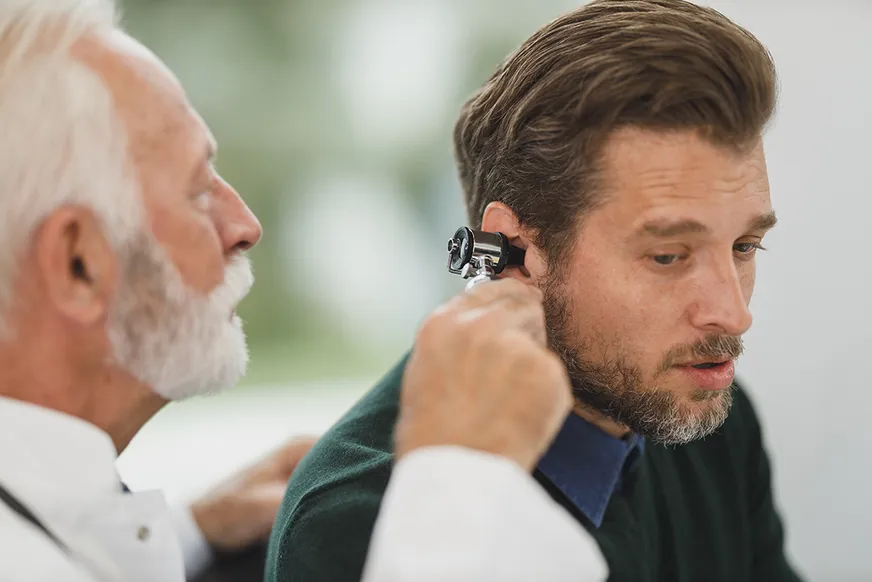Hearing loss is one of the most severe injuries a worker can sustain on the job. The implications are wide-ranging, from communication struggles to long-term medical costs. When hearing is damaged at work, legal matters like workers’ compensation become critical. Unfortunately, these claims are rarely straightforward. Skilled attorneys can help California workers navigate the complexities and secure fair benefits.
Causes and Risks of Occupational Hearing Loss
Noise hazards arise in many industries. Abrasive blasting is a common example, used in construction, shipbuilding, and manufacturing. The process generates noise levels exceeding 100 decibels (dB), which is well above the OSHA limit of 90 dB and the NIOSH recommended limit of 85 dB. Prolonged exposure without proper safeguards often leads to noise-induced hearing loss (NIHL) or tinnitus.
Other high-risk activities include operating jackhammers, heavy equipment, and mining machinery. Because hearing damage develops gradually, many workers don’t notice symptoms until it becomes permanent. This is why audiometric testing and hearing protection devices (HPDs), such as earplugs or earmuffs, are vital. Under Cal/OSHA standards, employers are required to provide hearing conservation programs whenever exposure exceeds safe limits.
Medical Considerations
Work-related hearing loss requires specialized care. Audiologists and ENT doctors use audiograms to measure the extent of impairment. Treatments may include hearing aids, sound therapy, or, in severe cases, cochlear implants. Since conditions often worsen over time, monitoring and early intervention are crucial. Workers’ compensation plays a crucial role in covering these medical expenses.
Legal Challenges in Workers’ Compensation
Even with medical proof, insurers may argue that hearing loss stems from aging or non-work causes. Claims are often delayed or denied. In California, disputes can be taken to the Workers’ Compensation Appeals Board (WCAB). Evaluations by a Qualified Medical Evaluator (QME) may also be required to confirm the cause and severity of impairment.
Disability ratings determine the level of compensation, ranging from partial to total, temporary, or permanent disability benefits. In some cases, workers may also qualify for vocational rehabilitation if they are unable to return to their former jobs.
For example, a construction worker exposed to years of jackhammer noise may develop tinnitus. Even with a doctor’s diagnosis, the employer’s insurer might dispute work-related causation. With legal representation, evidence such as audiometric results and workplace noise data can establish a strong claim.
Human and Economic Impact
The consequences of occupational hearing loss go beyond medical charts. Workers may struggle to communicate, face safety risks due to missing alarms, and miss out on career opportunities in noise-heavy industries. The costs of hearing aids, therapy, and long-term care contribute to the burden.
According to NIOSH, 22 million U.S. workers are exposed to hazardous noise each year. In California, thousands of claims are filed annually, but many are contested or undervalued.
Worker Rights and Employer Duties
Employees have the right to:
- File a workers’ compensation claim without retaliation.
- Receive medical evaluations at no cost.
- Appeal denials through the WCAB.
Employers must:
- Provide safe workplaces and proper PPE.
- Offer annual hearing tests for at-risk workers.
- Train employees on the hazards and controls of noise.
Source
Safety+Health, “Abrasive blasting: Know the hazards,” Feb. 26, 2017
Frequently Asked Questions (FAQs)
Can I get workers’ compensation for hearing loss in California?
Yes. If hearing loss is linked to workplace noise, you may qualify for medical and wage benefits.
Does workers’ comp cover tinnitus?
Yes. Tinnitus related to job noise exposure may be compensable under certain circumstances.
Which industries have the highest risk?
Construction, mining, shipbuilding, and manufacturing are among the most risk-prone industries.
How do I prove my hearing loss was caused by work?
Audiometric tests, medical reports, and workplace exposure data can establish causation.
What if my claim is denied?
You can appeal through the WCAB with the help of an attorney.
If you are experiencing workplace hearing loss, don’t handle the process alone. At Hussain & Gutierrez, we help California workers fight claim denials and secure the rightful benefits they deserve.
Contact Hussain & Gutierrez today for a consultation.



